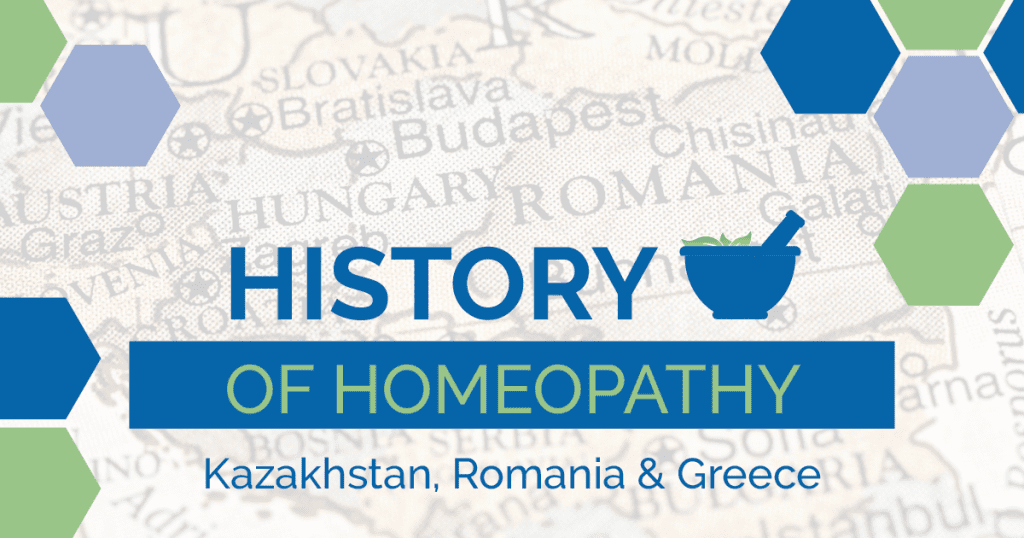Snapshots from There and Then: History of Homeopathy

In honor of AAHP’s 100th anniversary year, we’re looking back at the history of homeopathy to learn how the medical modality spread worldwide. Readers will discover startling vignettes of unexpected paths and outcomes. Many may know much about homeopathy here and now, but we hope you find our “There and Then” series informative and interesting!
Kazakhstan
In the early 1990s, an association of homeopathic doctors registered with the Kazakhstan government. Since then, growth has been unexpectedly fast. Within the decade, a medical center opened where patients are treated, and homeopathic doctors can study. The self-supporting department of Traditional Medicine in Homeopathy opened at the Medical University. Furthermore, approximately 1,000 people have been trained in homeopathy. Numerous physicians have also studied in England, Russia, India, Ukraine, and other countries. Many are successfully using homeopathic treatments in medical centers, clinics, and hospitals.
Recently, homeopathy’s existence was suddenly threatened in Parliament by a motion to remove it from “traditional medicine.” An outpouring of support arose from both within the country and the international homeopathic medical community. In the end, homeopathy’s place remained within recognized and legal traditional therapies.
Romania
A homeopathic society was formed in Romania in 1947. Shortly after, with the advent of communism, the homeopathic practice became illegal. A few homeopaths fled to other countries, yet some stayed. By 1967, the practice was “tolerated” and some pharmacies began operating. The practice of homeopathy was legalized in 1969 and, with the fall of the communist regime, it was no longer considered “witchcraft.” A major positive influence on homeopathy in Romania was the wife of Germany’s President Carstens, who was a homeopathic physician herself. Since 1981, the practice of homeopathy has been legal and regulated. Only medical doctors can lawfully practice after completing a three-year course and passing an examination to be fully licensed. At last estimate, there were about 700 homeopaths.
Greece
The early history of homeopathy in Greece is sparse with one known practitioner in the very early 20th century and another practice beginning in 1933. This second doctor bought medicines from France but also made some himself. It wasn’t until 1959 that a pharmacist began a business of importing and producing homeopathic medicines for others.
However, Greece and homeopathy made up for that early scant connection once G. Vithoulkas started teaching in the 1960s. Since then, Greece has been a center of homeopathic practice and a leader in teaching both within its country and in other nations. Schools were founded and the number of doctors steadily increased. This increase in acceptance led to the establishment of at least five clinics in the country using homeopathic medicines.
At the University of Athens, research revealed patients who suffered from chronic problems for many years and were treated with homeopathic medicines returned feeling better and were excited about their improvement. Doctors from the homeopathic medical society have been involved with studies in public hospitals on infertility and headaches. The excellent results from these studies have been presented at international conferences.
References:
https://www.lmhi.org/Home/NvpAndCountries
https://www.wholehealthnow.com/homeopathy_pro/romania.html
https://d-nb.info/990663078/34
